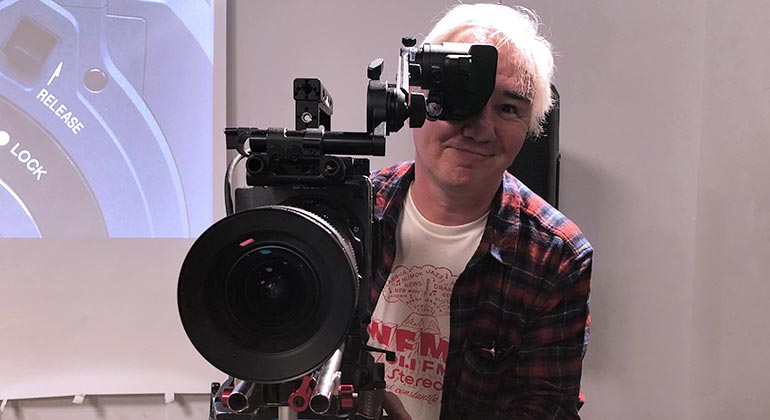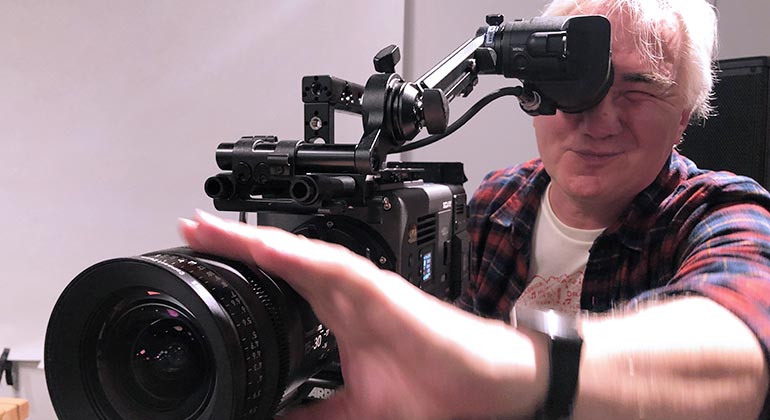

Thanks to a Lung Screening at Mount Sinai, a Former Smoker’s Cancer Was Detected Early and Treated Quickly
Growing up in Austria, Wolfgang Lehner started smoking early because it seemed like a social norm for the people around him. “Nonsmokers were the odd ones out,” he remembers. From the age of 15 until the age of 51, he was a heavy smoker. Eventually, he had enough and quit his pack-a-day habit in 2010.
In late 2017, after a change in his health insurance, Wolfgang saw a new doctor to receive his blood pressure medicine. His blood pressure had spiked after he quit smoking, but doctors had never found problems related to his smoking. The doctor suggested a computed tomography (CT) scan of his lungs, and when the results weren’t clear, he suggested that Wolfgang see a lung specialist. This started a journey that led to life-saving care by Mount Sinai specialists and the new Mount Sinai Lung Screening Program, which focuses on the effects of long-term smoking.
For a possible lung infection, Wolfgang was prescribed antibiotics by pulmonologist Peter Smith, MD, at Mount Sinai Doctors in Brooklyn Heights, and then another chest CT scan was taken. When the scan showed no change, Dr. Smith suggested Wolfgang speak with a specialist at The Mount Sinai Hospital, David F. Yankelevitz, MD, Professor of Radiology, and Director of the Lung Biopsy Service at the Icahn School of Medicine at Mount Sinai. Dr. Yankelevitz conducted a biopsy, called a fine needle aspiration. Wolfgang was diagnosed with adenocarcinoma, a form of lung cancer.
Within a day, Wolfgang met with pulmonary specialist Charles Powell, MD, MBA, Director of the Mount Sinai-National Jewish Health Respiratory Institute, and Professor of Medicine and Chief for Pulmonary, Critical Care and Sleep Medicine at Icahn Mount Sinai. He believed the cancer had started to grow about a year before he stopped smoking. Fortunately, the cancer was caught early, and the tumor could be removed with a minimally invasive procedure. To prepare for the surgery, Wolfgang picked up cycling to improve his lung health and help expand his lungs.
Dong-Seok Lee, MD, Assistant Professor of Thoracic Surgery at Icahn Mount Sinai, performed a minimally invasive surgery, which involved making tiny cuts and inserting special instruments, including a tiny video camera, through these small openings to remove the tumor, rather than making much larger incisions. The surgery was a success. Wolfgang arrived at the hospital on a Wednesday and was home on Saturday. The time from diagnosis to surgery was three weeks. And when Dr. Lee examined the tumor in the lab, he discovered a very aggressive component that was not visible before the surgery but since it was stage one lung cancer, no further treatment was required.
Wolfgang was able to return to work as a cinematographer soon after. He credits great support from Mount Sinai, friends, and family with his speedy recovery. He continues to get chest CT scans of his lungs twice a year to check for signs of cancer.
Now he is urging everyone who smoked to get screened. “Many people don’t want to know,” Wolfgang says. “But it’s better to know so they can catch it early.”
To read more patient stories, click here.